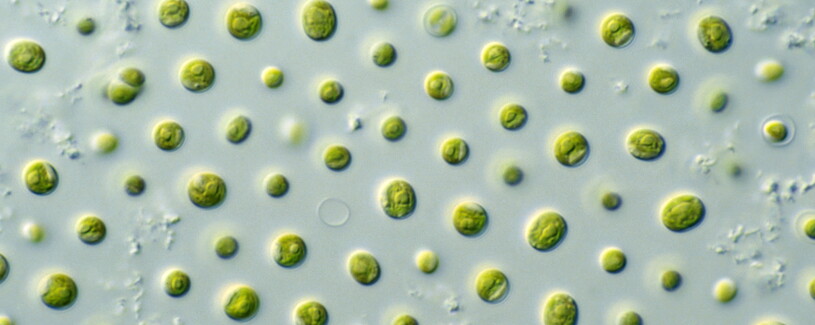Entrepreneurial Solutions to Climate Change: Concha Aquaponics
Reducing greenhouse gas emissions through aquaponics

In the fall of 2017, CBEY, along with Yale University Office of Sustainability, and Yale Institute for Biospheric Studies, organized a grant program for students who have entrepreneurial or innovative ideas to address critical catalysts & solutions for climate change. We interviewed the team members of Concha Aquaponics (formerly Moove Over Methane) who were awarded the grant for their initiative to reduce methane emissions, to understand more about their idea, approach, and of course, about themselves
Concha Aquaponics Members: Victoria Shirriff, Nicholaus Johnson, Alexia Akbay, Joseph Clingerman (all from Yale School of Public Health)
Q – How did you come up with this idea? Tell us more
While we all come from different academic and research backgrounds, we are all interested in finding ways to mitigate the role food systems have as a driver of climate change. After coming across research linking a specific macroalgae, Asparagopsis taxiformis, to decreased methane emissions in cattle and other ruminant animals, we were really excited about the possibility of this research becoming a reality here at Yale. Furthermore, considering that the potential methane reduction margins of 20% can be achieved by incorporating this algae into ruminant animal feed, we remain committed to seeing this venture grow in both size and impact.
Q – Tell us more about the Aquaponics system
Not only will our algae product be used to significantly reduce methane emissions, but the aquaponics system itself is notably one of the most sustainable agricultural methods to date. An ecosystem is essentially formed between fish or shellfish and vegetation. In this case, nutrients such as nitrates and oxygen are recycled between the two, ultimately eliminating the need for fertilizers or antibiotics. Additionally, water loss averages at a mere 1%. Our system will be growing shrimp alongside the red macroalgae, with hopes of working towards a more sustainable aquaculture industry.
Q – That is great! So, what are the next steps and plans for the future?
We are so grateful to CBEY for all of the guidance and resources they have provided, they have definitely been instrumental in our success thus far. First and foremost then we plan on continuing to work with CBEY for mentorship. We have also been tapping into various resources on campus. Currently, we have engineers working to design our system, in addition to students across campus researching various aspects of the aquaponic system and the different roles we can potentially expand into. That being said, we are excited by the possibility of working with even more students, and we are always looking for students that want to get involved and can contribute some meaningful work and research.
We are also making connections beyond Yale by reaching out to universities and companies with similar initiatives. Eden Works, for example, is an aquaponics company based out of Brooklyn, NY that is growing fish and micro-greens. They have been a wonderful resource in letting us tour their facilities in addition to their continued steering and feedback.
Looking towards the future, once our aquaponics system is up and running, our next steps will involve selling shrimp to local restaurants and maintaining solid relationships for business continuity. After establishing a solid base in this area, we will use these profits to expand and scale up our venture, which will include developing an algae based feed for ruminant animals.
Q – In your opinion, what is the role of entrepreneurship in climate change?
We believe that climate change will soon necessitate fundamental changes to the way we live, eat, govern, and conduct business. While possible, these changes are unlikely to come from a top down approach. Rather, we believe it is the role of entrepreneurs like us to create viable alternatives to the status quo that can be rapidly implemented. Unlike large companies or government organizations, we face comparatively low risks with our venture and are therefore much better positioned to pursue radical approaches to climate change mitigation.
We are therefore so thankful to be attending a place like Yale, where the president Peter Salovey, PhD recently emphasized his belief in the role of universities in creating real solutions to climate change. We recognize that Yale is unique in providing students the actual physical resources and space needed to carry out these entrepreneurial ventures. Justin Frieberg in particular, who runs the Landscape Lab on Yale’s West Campus, has been an invaluable mentor and source of support as we work with him to develop a space at the Landscape Lab to build and run our aquaponic system.
Q – Your thoughts about the drawdown framework and the role that may have played for your idea
While Paul Hawken’s work has not necessarily had a direct impact our work, it has been an important source of inspiration. We similarly recognize that climate change necessitates not one but many varied solutions to different social and environmental problems. We also recognize that although we appear to be working in the food sector, entrepreneurial ventures like ours will hopefully have far reaching implications.
Q – Anything else that you would like to share with us about your project or regarding your team dynamics?
One aspect of this venture that we are particularly excited about is the fact that while aquaponic systems are almost always freshwater based, our will contain salt water. This may seem like a trivial matter, but it really does create new alternatives and opens up possibilities of expanding into untapped markets.
Furthermore, we have found that one of the best parts of this venture is being able to learn from each other, the Yale community as a whole, and those working throughout the region to develop sustainable alternatives to our current food system. It has really been a team effort and we are looking forward to growing that team in the future and seeing where this venture takes us.